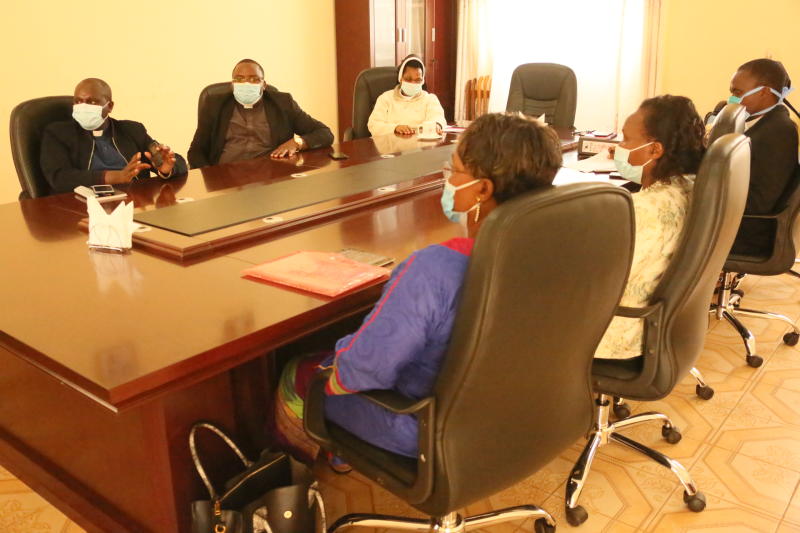×
The Standard e-Paper
Fearless, Trusted News

Good Shepherd Call Center team meets to analyse distress calls at Our Lady of Consolata Cathedral Catholic Church in Nyeri. [Kibata Kihu, Standard]
On a cold Tuesday afternoon in Nyeri, a group of three priests, three nuns and two psychologists, all in masks and keeping their social distance, meet at a boardroom at the Nyeri Catholic Secretariat.